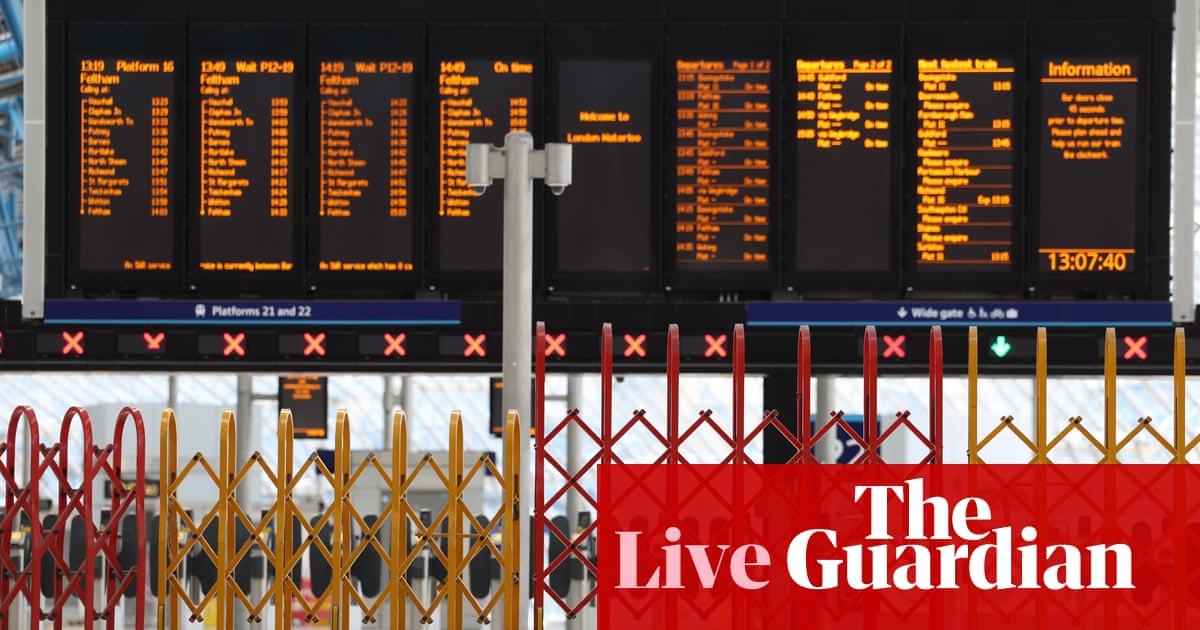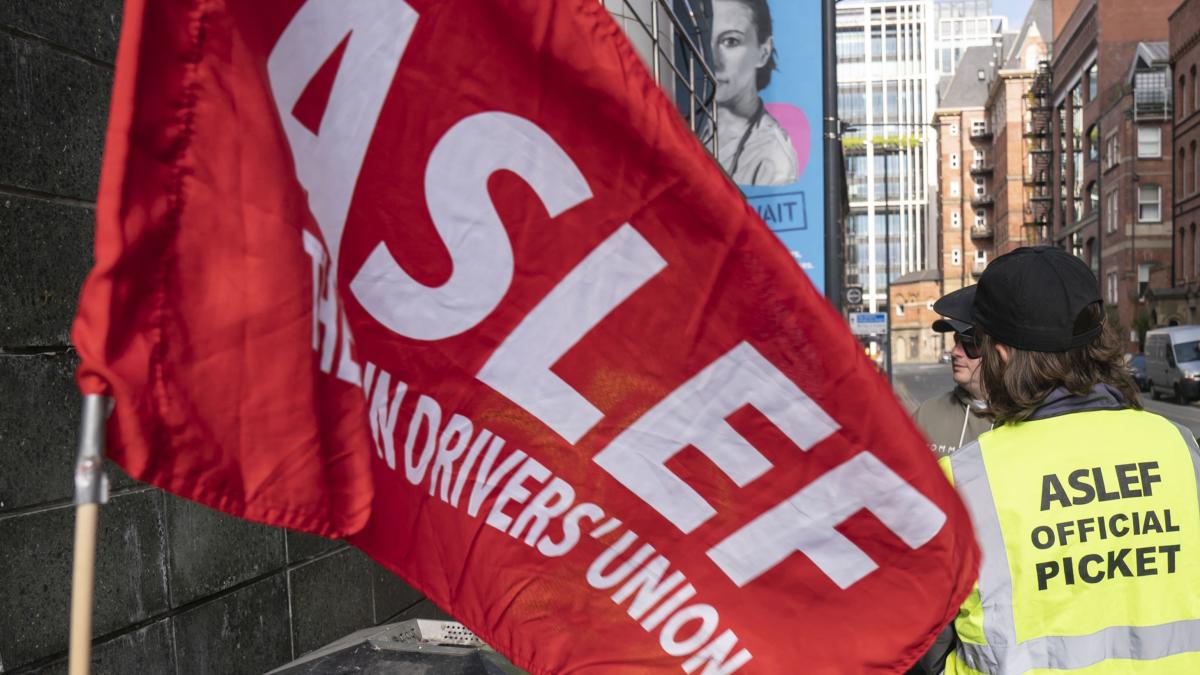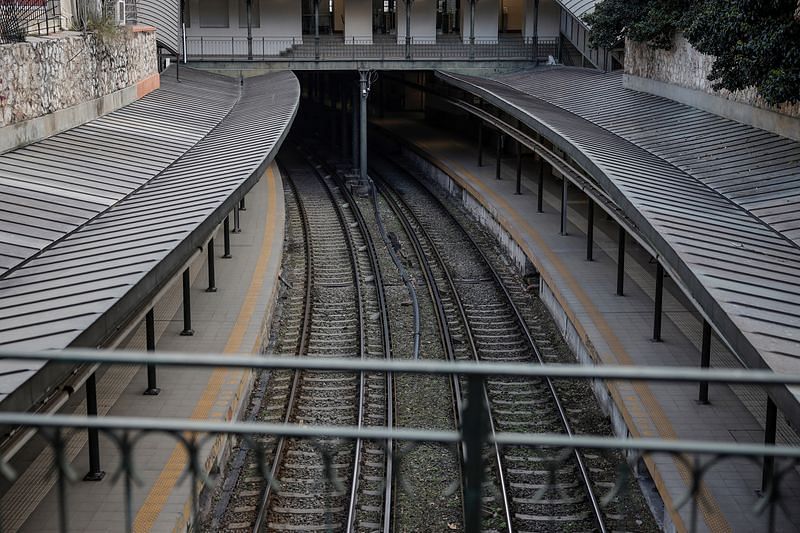







Rail services in Greece came to a halt as rail workers went on strike to mark the anniversary of the country's deadliest train crash. On February 28, 2023, a passenger train collided with a freight train in Tempi, Larissa, resulting in the death of 57 people and injuring 85 [e1390a59]. Working-class movements, youth and student groups, and labor federations observed a national strike on the first anniversary of the accident. They blamed criminal negligence, underfunding, and privatization of the railways by the government for the tragedy [e1390a59]. The official inquiry into the accident has not been completed. Protesters from various sectors, including rail workers, hospital workers, seafarers, and school teachers, joined the strike to demand justice and higher pay rises. Demonstrators also protested against insufficient pay rises in the public sector. The conservative government has increased the minimum monthly salary by 20% since 2019 and plans to raise it to 950 euros by 2027. However, monthly salaries in Greece still lag behind the European Union average [4fd6d01b].
Meanwhile, train drivers in the UK are preparing for an overtime ban and a series of fresh strikes. Members of the train drivers' union Aslef have been involved in a 20-month dispute over jobs, with no sign of a breakthrough or plans for talks. The overtime ban will begin on Thursday and will be followed by a 48-hour strike starting next Monday. This is expected to cause delays and cancellations to services. On Friday, Avanti West Coast, CrossCountry, East Midlands Railway, West Midlands, and London Northwestern will be affected by the strike. On Saturday, train drivers from Chiltern Railways, Great Western Railway, LNER, Heathrow Express, Northern, and TransPennine Express will walk out. And on Monday, c2c, Gatwick Express, Greater Anglia (including Stansted Express), Great Northern, Southeastern, Southern, South Western Railway (including the Island Line), and Thameslink will be impacted by the strike. Aslef general secretary Mick Whelan has called for talks after announcing renewed mandates for industrial action, highlighting that train drivers have not had an increase in salary since 2019 [02cbf4d6].
In the latest news, train strikes have halted most services in the west of England, Midlands, and routes to Scotland and Wales. The strikes, carried out by Aslef drivers, are in protest of pay and conditions. The strikes are expected to last for three days [8f3e1965].
Stansted Express services have been suspended after a person was hit by a train near Bishop’s Stortford on Tuesday morning. All lines between Bishop’s Stortford and the airport are blocked as emergency services respond to the incident. CrossCountry services between the airport and Birmingham New Street, and Greater Anglia services between Stratford and Bishop’s Stortford are also affected. Passengers should expect disruption until further notice as trains may be cancelled, delayed, or revised. Avanti West Coast and London Northwestern services to Euston are also being delayed due to a safety inspection of the track. Rail replacement buses are being arranged between Bishop’s Stortford and Stansted Airport / Audley End. Trains from Cambridge are terminating at Audley End, with no onward travel to Bishop’s Stortford and Liverpool Street. The incident occurred when a person was hit by a train between Bishop’s Stortford and Stansted Airport, resulting in the suspension of Stansted Express services and impacting some services between Stansted Airport and Cambridge. In a separate incident, a safety inspection of the track has caused delays for Avanti West Coast and London Northwestern services to Euston. The disruption is expected to last until 11am. Greater Anglia and Stansted Express are working to provide rail replacement buses between Bishop’s Stortford and Stansted Airport / Audley End. Trains from Cambridge are currently terminating at Audley End, with no onward travel to Bishop’s Stortford and Liverpool Street. CrossCountry services between Stansted Airport and Birmingham New Street are also affected [207f96fa].
This year marks the 40th anniversary of the miners’ strike, which saw brutal policing of the dispute. On June 18, 1984, 6,000 miners attended a coking plant in Orgreave, confronted by 6,000 police mobilized to facilitate the movement of coke. The police used paramilitary tactics from a secret public order manual, leading to charges of riot against many miners. The trial of the first 15 collapsed after 48 days. The Orgreave Truth and Justice Campaign is fighting for resolution and the Labour Party has committed to an investigation. The police force has been found to be institutionally racist, corrupt, misogynist, and homophobic. The campaign is releasing a new report on the Case for an Inquiry on June 18, 2024. The film 'Strike: an Uncivil War' depicts the brutality faced by the miners and is showing in cinemas on June 18 and 19 [be9b84e8].
In the United States, a recent article provides historical context to the current labor strikes in the railroad industry. The Great Railroad Strike of 1877, which began when the Baltimore & Ohio Railroad cut wages, led to strikes and protests that spread nationwide. Over 100,000 people participated, and about 100 were killed. President Rutherford B. Hayes ordered federal troops to suppress the strike. While the strikes did not lead to immediate gains for the workers, they sparked better organization and enlightenment among workers. The government took steps to limit the power of unions, but the first federal law guaranteeing collective bargaining rights was enacted in 1926. Cities across the U.S. still bear the physical legacy of the 1877 railroad strike, with armories constructed to house National Guard units and suppress labor movements [90c55ae9].
Transport Secretary Louise Haigh has expressed frustration over the ongoing LNER train strike in the UK and has called on union leaders and employers to engage in dialogue. The strike action by LNER train drivers highlights the fragmented nature of the rail network [660c09c7]. The ASLEF union has proposed a deal with train drivers to resolve the long-running pay dispute. The strikes, which have been ongoing since June 2022, have cost the wider economy over £1 billion, with the Department for Transport estimating lost revenue due to strikes at around £850 million. LNER train drivers are set to walk out on weekends from the end of August over a local dispute about working practices. The forthcoming launch of Great British Railways is expected to bring significant changes to the rail industry, with the government aiming to reform management and working practices to prioritize passengers and deliver more reliable journeys [660c09c7].